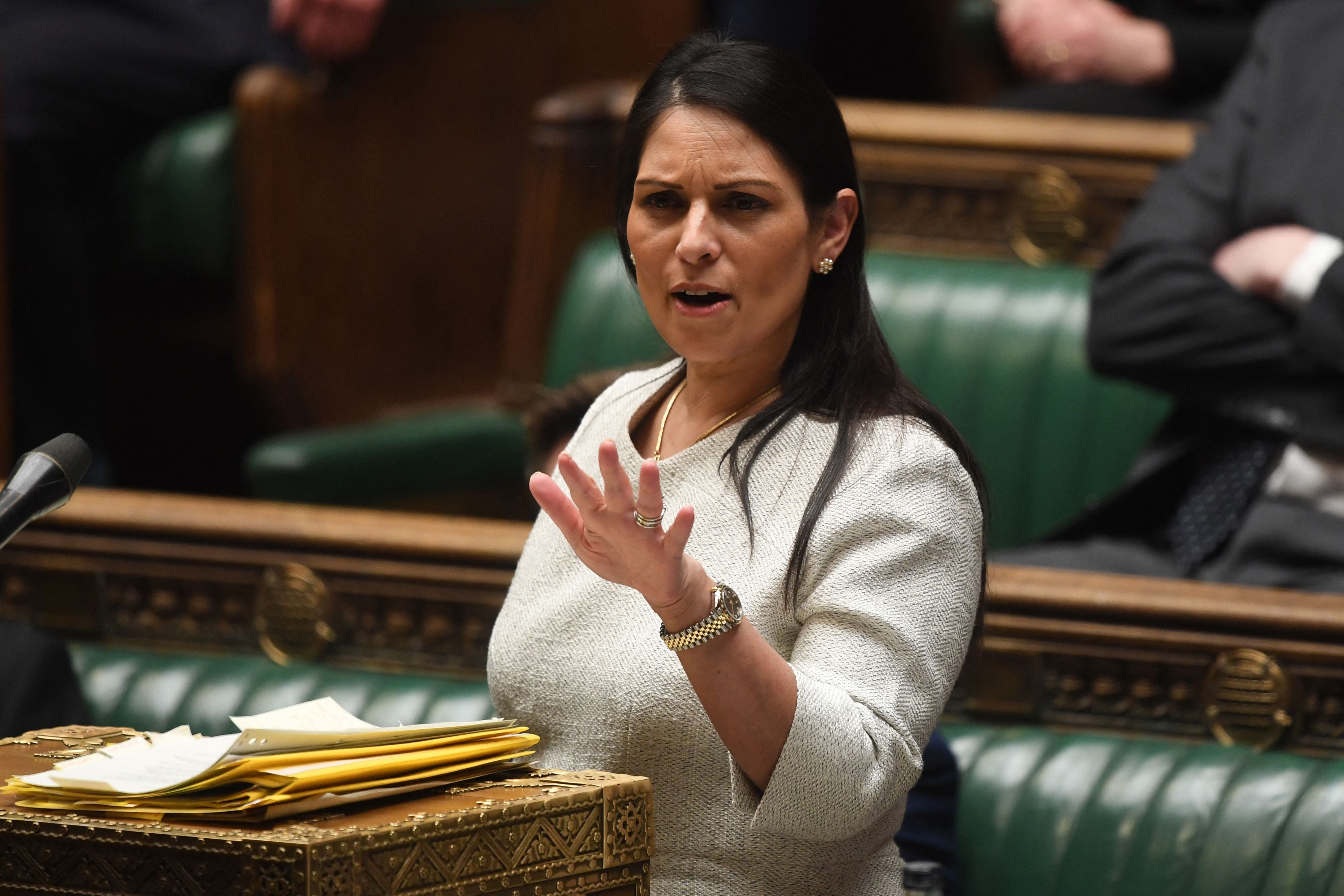The government’s talk of more ‘safe and legal’ asylum routes is nothing but empty words
Despite her claims, Priti Patel is doing little to create safe pathways for women, children and families so they don’t have to be put in the hands of smuggling gangs, argues May Bulman


“Safe and legal routes” has been bandied around a lot by ministers in recent days. Announcing the UK’s plan to ship asylum seekers to Rwanda last Thursday, Boris Johnson claimed proudly that these pathways would be a central part of the UK’s new, “innovative” approach to asylum.
Defending the controversial deal with the central African country this week, Priti Patel told the House of Commons the government was bringing in the changes to “stop that illegal trade in people smuggling, creating safe and legal routes for women, children and families so that they do not have to be put in the hands of the evil people smugglers”.
But despite all these claims that more safe routes will be created – and this being one of the central pledges in Ms Patel’s Nationality and Borders Bill – plans to give those crossing the Channel an alternative way of reach the UK are nowhere to be seen.
In a show of its unwillingness to create more safe and legal routes, the government voted down an amendment to the bill, tabled by the House of Lords, to introduce a global resettlement scheme that would commit to bringing 10,000 people to safety each year.
And it also rejected a watered down version of the amendment – to commit to a numerical target on resettlement – in the House of Commons on Wednesday evening.
Instead of announcing new routes, Johnson and Patel have been boasting about the UK’s existing safe and legal schemes, proclaiming that more than 180,000 people have been brought to the UK under these pathways since 2015.
But the bulk of these arrivals – around 150,000 - is made up of Hong Kong nationals and Ukrainians, not the nationalities that are embarking on dangerous journeys across the English Channel.
Among those who have been resettled are also 20,000 Syrians through the now-closed scheme created in response to the Syrian war and 13,000 Afghans who were brought over following the Taliban takeover of Kabul.
Only 1,125 people have been brought to the UK under the UK Resettlement Scheme, a global enterprise that opened at the start of 2021 and was originally set to take in 5,000 refugees in its first year.
Current resettlement schemes do little to help those embarking on dangerous journeys across the Channel. Analysis of Home Office data by the British Red Cross shows only 134 refugees from the top three nationalities arriving on small boats were brought to the UK via the resettlement route last year.
This includes only four Iranians – who accounted for the most small boat arrivals in 2021, and who have a 87 per cent asylum grant rate – and 10 Eritreans, who accounted for the third most arrivals and have a 97 per cent grant rate.
The reality is that the vast majority of people claiming asylum after making perilous boat crossings to the UK cannot access safe and legal routes, and ministers have no plans to create new ones that will enable them to. Attempts to justify the Rwanda deal with promises of safe pathways are nothing but empty words.



Join our commenting forum
Join thought-provoking conversations, follow other Independent readers and see their replies
Comments